with a focus on:







with a focus on:












Rockville Centre Resident Joins Local Long Island Dental Practice!






www.GardenCityDentalGroup.com






1215218 May 17, 2023 — YOUR HEALTH MENTAL HEALTHHerald Community Newspapers S-2




Lauren C. Cantwell, D.D.S., is pleased to announce that she has recently joined Garden City Dental Group in Garden City.



As a lifelong Rockville Centre resident, Dr. Cantwell attended St. Agnes School and then attended Sacred Heart High School. She received her Bachelor of Science degree at the College of the Holy Cross before going on to the University of Buffalo School of Dental Medicine. Upon graduation from dental school, she attended a three-year residency program at North Shore University Hospital, in Manhasset. After serving there as chief resident, she was accepted into their Dental Implant Fellowship Program, where she received an advanced level of education and training in Dental Implantology.
In 2019, Dr. Cantwell began practicing in Rockville Centre, where she continues to reside

with her husband and daughter.
“Joining Garden City Dental Group,” Dr. Cantwell says, “allows me the opportunity to deliver personalized care to my patients, in a state-of-the-art setting while maintaining, old school values.”



In addition to a wide range of dental services, Dr. Cantwell’s expertise in placement of dental implants and restoration of complex cases, will allow her to provide a more comprehensive
approach to patient care.
“Dr. Cantwell’s dedication to utilizing the latest techniques has made her a wonderful addition to our team,” says Dr. Dominique Lizzio, owner and general dentist at Garden City Dental Group. “She is a warm and confident practitioner that fits well with the culture of our practice.”
Some people think that only people with mental illnesses have to pay attention to their mental health.
But the truth is that your emotions, thoughts and attitudes affect your energy, productivity and overall health. Good mental health strengthens your ability to cope with everyday hassles and more serious crises and challenges. Good mental health is essential to creating the life you want.
Now, during Mental Health Month, is a good time to take stock of your mental well-being and its connection to overall health. Just as you brush your teeth or get a flu shot, you can take steps to promote your mental health. A great way to start is by learning to deal with stress.
How stress hurts
Stress can eat away at your well-being, like acid eating away at your stomach. Actually, stress can contribute to stomach pains and lots of other problems, like headaches, insomnia, overeating, back pain, high blood pressure, heart disease and stroke, irritability, vulnerability to infection, and poorer brain functioning.
Stress also can lead to serious mental health problems, like depression and anxiety disorders. If you think you have such a problem, you can get help.
Of course you can’t magically zap all sources of stress. But you can learn to deal with them in a way that promotes the well-being you want and deserve. You can figure out ways to cope better with whatever comes your way. And decades of research suggest which steps are most likely to work.
Are you too stressed?
Your stress reaction can boost your performance and get you through a crisis. But too much stress can lead to serious problems.
If you’re concerned about your well-being, take a look at the symptoms of stress overload:
√ Fatigue
√ Headaches
√ Loss of concentration
√ Difficulty making decisions
√ Inability to control anger
√ Increased use of alcohol, caffeine, cigarettes or drugs
√ Increased or decreased eating
√ Feeling overwhelmed
√ Thinking often about what you need to do
The evidence
The concrete steps mental health professionals suggest are not based on guesses, fads or advice from grandma (though she probably got a lot right). They represent hundreds of research studies with thousands of participants, often conducted over decades and backed
by major universities or government agencies.
This research shows that how good you feel is to a fairly large extent up to you. No matter how stressful your situation, you can take steps to promote your well-being.
We’re not talking about huge changes to your lifestyle, either. We’re talking about reasonable steps that if used consistently can increase your comfort and boost your ability to build a rewarding life.

Improve mental and emotional health by taking care of yourself
In order to maintain and strengthen your mental and emotional health, it’s important to pay attention to your own needs and feelings. Don’t let stress and negative emotions build up. Try to maintain a balance between your daily responsibilities and the things you enjoy. If you take care of yourself, you’ll be better prepared to deal with challenges if and when they arise.
Taking care of yourself includes pursuing activities that naturally release endorphins and contribute to feeling good. In addition to physical exercise, endorphins are also naturally released when we:
Do things that positively impact others. Being useful to others and being valued for what you do can help build self-esteem.
Practice self-discipline. Self-control naturally leads to a sense of hopefulness and can help you overcome despair, helplessness, and other negative thoughts.
Appeal to your senses. Stay calm and energized by appealing to the five senses: sight, sound, touch, smell, and taste. Listen to music that lifts your mood, place flowers where you will see and smell them, massage your hands and feet, or sip a warm drink.
Engage in meaningful, creative work. Do things that challenge your creativity and make you feel productive, whether or not you get paid for it things like gardening, drawing, writing, playing an instrument, or building something in your workshop.
Make time for contemplation and appreciation.
Think about the things you’re grateful for. Mediate, pray, enjoy the sunset, or simply take a moment to pay attention to what is good, positive, and beautiful as you go about your day.
Limit unhealthy mental habits like worrying. Try to avoid becoming absorbed by repetitive mental habits negative thoughts about yourself and the world that suck up time, drain your energy, and trigger feelings of anxiety, fear, and depression.
One of the best ways you can help someone with mental illness is by understanding what it is and what it isn’t. After all, myths about mental illnesses contribute to stigma, which in turn prevents those who are living with one from seeking help.
The fact is, a mental illness is a disorder of the brain your body’s most important organ and 1 in 6 adults lives with a brain-related illness including depression, bipolar disorder, PTSD and schizophrenia. Like most diseases of the body, mental illness has many causes from genetics to other biological, environmental and social/cultural factors. And just as with most diseases, mental illnesses are no one’s fault. The unusual behaviors associated with some illnesses are symptoms of the disease —not the cause.
But most importantly, mental illnesses are treatable through medication and psychosocial therapies allowing those who live with them the opportunity to lead full and productive lives.
Fact vs. Fiction
Fiction: People living with a mental illness are often violent.
Fact: Actually, the vast majority of people living with mental health conditions are no more violent than anyone else. People with mental illness are much more likely to be the victims of crime.
Fiction: Mental illness is a sign of weakness.
Fact: A mental illness is not caused by personal weakness nor can it be cured by positive thinking or willpower proper treatment is needed.
Fiction: Only military personnel who have been in combat can be diagnosed with PTSD.
Fact: While PTSD is prevalent in men and women who have seen combat, experiencing or witnessing a traumatic event can trigger PTSD, including violent personal assaults such as rape or robbery, natural or humancaused disasters, or accidents.
Fiction: People with a mental illness will never get better.
Fact: For some people, a mental illness may be a lifelong condition, like diabetes. But as with diabetes, proper treatment enables many people with a mental illness to lead fulfilling and productive lives.
Fiction: Children aren’t diagnosed wtih mental illness.
Fact: Millions of children are affected by depression, anxiety and other mental illnesses. As a matter of fact, 1 in 10 children live with a diagnosable mental illness. Getting treatment is essential.
Fiction: “Mental illness can’t affect me!”
Fact: Mental illness can affect anyone. While some illnesses have a genetic risk, mental illness can affect people of all ages, races and income levels, whether or not there is a family history.

Do you know someone who is experiencing mental health issues? If so, you are not alone.
Especially in the post-COVID-19 era, mental illnesses are on the rise—yet it is not always easy to find treatment.
One in five adults and one in seven children in this country have at least one treatable mental health disorder, yet fewer than half receive the care they need, according to the U.S. Substance Abuse and Mental Health Services Administration (SAMHSA).

“Untreated mental illness can result in social isolation, unemployment, disability, substance abuse, homelessness, unnecessary incarceration, and suicide,” said Michele Lucero, PsyD, Administrative Director of Behavioral Health at Mount Sinai South Nassau. “It affects not just individuals but families, schools, the workforce, and society.”
There are steps we all can take to help those in need, including challenging the stigma associated with seeking care, connecting those who are suffering with available resources, and respecting the value of every person in our communities. Identification: Individuals, families, employers, and school personnel should become familiar with early warning signs. Social withdrawal, increased substance use, anger outbursts, crying spells, excessive anxiety or sadness, changes in sleeping or
eating habits, inability to handle daily tasks and stressors, poor work performance, and declining grades are all indicators of mental health symptoms.
Challenging Stigma: Many of those who are experiencing these issues do not discuss their symptoms due to feelings of shame or weakness. Society has fostered the attitude that mental disorders are somehow different from real, treatable health conditions. Nothing could be further from the truth. These conditions affect people of all ages, races, religions, and incomes. They are not the result of personal weakness and cannot be overcome through willpower or avoidance. Talking about mental health can normalize it and ensure that we take steps to care for ourselves and our loved ones.
Treatment and Support: There is a wide range of effective and available care for those suffering with mental health disorders. Between 70 and 90 percent of individuals who engage in treatment experience a significant reduction in symptoms and improved quality of life. Self-care is also crucial. Socializing, engaging in hobbies, physical exercise, healthy eating, and good sleep patterns are all effective ways to manage a wide range of mental health conditions.
Mount Sinai South Nassau has been providing mental health services to Nassau County residents for more than 50 years. The hospital is committed to providing the highest-quality treatment and support to children, adults, and families with a wide variety of symptoms and diagnoses, including anxiety,
depression, attention-deficit/hyperactivity disorder, substance use disorders, and many more. We offer outpatient in-person and telehealth services in Baldwin and Hempstead; we accept a variety of payment options and use a sliding scale for those who are not insured. Treatment is provided in English and Spanish, as well as in more than 100 other languages via our interpreter services. Call us at 516-377-5400 for an appointment. For inpatient care, we have a 36-bed adult psychiatric unit at our main campus in Oceanside.
Mount Sinai South Nassau’s Community Education program and Vaxmobile partner with Behavioral Health to offer free depression screenings and free seminars such as, “The role of peer support in substance abuse treatment,” to be held Tuesday, May 30, at 2 pm at Oceanside Library.
Those in need of primary substance use treatment can contact our affiliate, Oceanside Counseling Center, at 516-766-6283. If you or someone you love is thinking about suicide or need immediate emotional support, dial or text 988 to connect to the Suicide and Crisis Lifeline.

Queens-Long Island Renal Institute (QLIRI), located at The Parker Jewish Institute, now offers a state-of-theart Home Hemodialysis Program.
QLIRI’s Home Hemodialysis Program allows patients to transition from an in-center setting to receiving hemodialysis from the comfort of their home, using the Tablo Hemodialysis System.
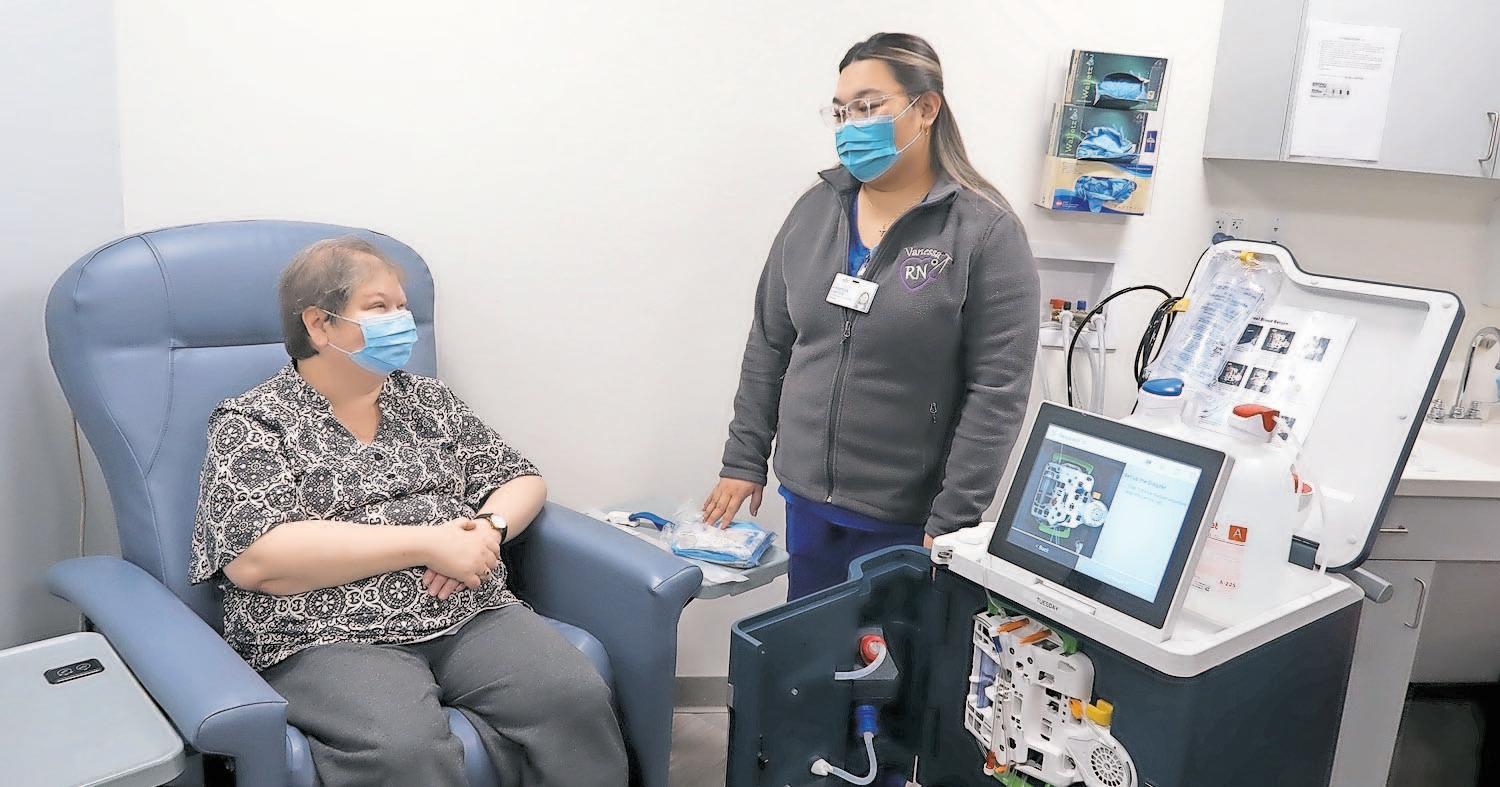
Patients who enroll in the program are first trained by a registered nurse. The nurse provides step-by-step guidance four days a week over the course of four weeks, or longer if necessary. During the training, patients learn how to use the system before they transition to home hemodialysis.
Hemodialysis is a treatment that filters wastes, toxins and excess fluid from the blood for people with failing kidneys. Those needing dialysis can spend three-to-five hours a week, several times a week to receive treatment. QLIRI’s at-home program provides patients the flexibility to access needed care without ever leaving their homes, while also freeing up time to engage in their daily activities.
“We are so pleased to offer our Hemodialysis Program at Queens-Long Island Renal Institute. Thanks to this vital program, patients can receive hemodialysis at home within a schedule that fits their lives. It also removes the time, stress and costs of traveling to and from a clinic. And it affords patients the flexibility and opportunity to take part in activities and commitments that are important to them,” said Michael N. Rosenblut, President and CEO of Queens-Long Island Renal
Institute.
Call with questions! (718) 289-2600. To learn more about QLIRI’s Home Hemodialysis Program, visit https://qliri.org.
You’ve probably heard the expression,“you are what you eat,” but what exactly does that mean? Put simply, food is fuel, and the kinds of foods and drinks you consume determine the types of nutrients in your system and impact how well your mind and body are able to function. It all goes back to the basics of good nutrition.
Drinks
Avoid: Sugary drinks and excessive amounts of caffeine. Sugary drinks have empty calories and damage tooth enamel. Caffeine dehydrates you. Studies show that even mild dehydration can cause fatigue, difficulty concentrating, and mood changes1, in addition to physical effects like thirst, decreased or dark urine, dry skin, headache, dizziness and/or constipation.
Try to: Drink at least eight glasses of water a day (about 2 liters) to prevent dehydration. If you feel like you need some caffeine, limit yourself to one cup of coffee, or try tea. Tea has lower amounts of caffeine than coffee and has lots of antioxidantschemicals found in plants that protect body tissues and prevent cell damage.
Breakfast
Avoid: Skipping breakfast. Breakfast is needed to fuel your body (including your brain) after going without food during sleep and also jump-starts your metabolism for the day. Skipping meals leads to fatigue and feelings of “brain fog.”
Try to: Incorporate a healthy breakfast into your routine. If you’re tight on time in the mornings, grab a whole grain granola bar, yogurt and a piece of fruit to get you off to a good start.
Lunch and Dinner
Avoid: High-fat dairy, and fried, refined and sugary foods, which have little nutritional value. In addition to contributing to weight gain, and conditions like diabetes, research shows that a
diet that consists primarily of these kinds of foods significantly increases risk of depression.
Try to: Eat a diet that relies on fruits, vegetables, nuts, whole grains, fish and unsaturated fats (like olive oil). People who follow this kind of diet are up to 30 percent less likely to develop depression than people who eat lots of meat and dairy products

Folate (Folic Acid, Vitamin B9): Increased intake of folate is associated with a lower risk of depression. Folate is especially important for pregnant women, but everyone needs folic acid for production of cells. It is especially important for healthy hair, skin, nails, eyes, liver and red blood cell production.
Leafy green vegetables like spinach and kale, fruits, nuts, beans and whole grains have high amounts of folate, or folic acid.
Vitamin D: Rates of depression are higher in people with Vitamin D deficiency compared to people who have adequate levels of vitamin D. Lack of Vitamin D is thought to play a role in
Seasonal Affective Disorder, which is depression that commonly starts in the fall, lasts through winter and subsides in the sunnier spring and summer months.
Vitamin D is needed to help the body absorb calcium for strong teeth and bones, and the health of muscles and the immune system. Vitamin D deficiency is associated with heart disease and increased risk of heart attacks.
Most foods do not naturally have Vitamin D, but many are “Vitamin D fortified.” Fatty fish like salmon and tuna have the most naturally occurring Vitamin D. Other foods like milk, orange juice and breakfast cereals have Vitamin D added.
Our bodies also produce Vitamin D as a result of being in the sun. Five to thirty minutes of sun exposure twice a week generally produces enough Vitamin D, with lighter-skinned people requiring less time than those with darker skin. Keep in mind that time in the sun beyond the suggested amounts above requires use of sunscreen to prevent skin damage and reduce risk of skin cancer. Vitamin D supplements may be used in fall and winter months.
Omega-3 Fatty Acids: Some studies suggest that omega-3s may be helpful in the treatment of depression and seem to have a mood-stabilizing effect. Omega-3 essential fatty acids may also help boost the effectiveness of conventional antidepressants and help young people with ADHD.
Omega-3 fatty acids are thought to be important in reducing inflammation, the primary cause of conditions like arthritis and asthma, and play a role in heart health by reducing triglycerides (blood fats). And, as has been widely reported, they may also reduce risk for certain kinds of cancer.
Oily fish (salmon, trout, mackerel, anchovies and sardines) are the most highly recommended sources of omega-3 fatty acids, and the American Heart Association suggests eating these types of fish at least twice a week. Omega-3s can also be found in walnuts, flax (or flaxseed oil), olive oil, fresh basil and dark green leafy vegetables.
Courtesy Mental Health America
Photo: It’s widely known that nutrition plays a key role in your physical health. But studies also show that nutrition directly affects our mental and emotional well-being, too.

The Association of Jewish Aging Services awarded The Parker Jewish Institute with the 2022 Jewish Programming Award for its Family Call Center.

The award recognizes Jewish programs developed and implemented by AJAS organizations that are innovative, creative and specifically designed to enhance the spiritual well-being of the older adults they serve.
Early in the pandemic, Parker established its Family Call Center as a technology-based intervention, enabling patients and residents to connect with loved ones, and ensuring that family members quickly accessed essential information. In 2022, Parker adopted advanced technology to create new efficiencies, linking the Call Center to units within the Institute. This measure enhanced communications, so team members could expedite actions when needed and share information about Parker’s wideranging services.
Now, through the Call Center, families continue to easily get clinical updates on loved ones. Families reach out to the Call Center for information about social services and to communicate with social workers. Parker’s proactive Call Center team members connect with the
family of patients and residents on the day of admission, providing contact information and resources. They coordinate tours for potential patients, helping to simplify the admission agreements when needed.
“We are so proud to receive the AJAS 2022 Jewish Programming Award,” said Parker’s President and CEO Michael N. Rosenblut. “We continue to hone innovation at the Family Call Center, engaging team members and improving the quality of life for Parker’s residents, patients and their loved ones.”
About The Parker Jewish Institute for Health Care and Rehabilitation
The Parker Jewish Institute for Health Care and Rehabilitation is headquartered in New Hyde Park, New York. The facility is a leading provider of Short Term Rehabilitation and Long Term Care. At the forefront of innovation in patient-centered health care and technology, the Institute is a leader in teaching and geriatric research. Parker Jewish Institute features its own medical department, and is nationally renowned as a skilled nursing facility, as well as a provider of community-based health care, encompassing Home Health Care, Medical House Calls, Palliative Care and Hospice.

Here is a fascinating statistic. Centenarians, people who live to be 100 years young or more, embody a fairly small percentage of the total U.S. population. In fact, only approximately 1 out of every 10,000 Americans are 100 years or older. This small slice of the population who are surviving to extreme old age lures the attention of not only researchers but also the general public, as we attempt to recognize and learn from the experiences of those who beat the odds of environmental and biological hindrances to which most of us tend to fall prey. Why do some live such long, fulfilling lives, while others don’t? Good question, and one that needs to be addressed! Your first thought may be ‘perhaps these individuals are in some way genetically unique’. But no, the truth is, genetics only play a 25% part in their endurance. Guess what the other 75% is? Lifestyle! So, what do we need to do to live to 100, or beyond? What are we doing right? What are we doing wrong? Urban priorities transformed as we moved towards the industrial revolution due to the fact that infectious disease became such a great risk at that time. How about today though? Well, today, social isolation is the health risk of our time. Nowadays, 1/3 of the population claims to have two or less individuals who they can actually go to for comfort or help.
In researching centenarians, I swiftly discovered that as people age, and, quite frankly all through their lifespans, they are constantly surrounded by extended family, friends, neighbors, spiritual advisors, even the mail carrier. The fact is that people are always either with them or dropping by. They are not left to live lonely lives. Living a solitary life seems to be the norm in the developed world as we age. But, it doesn’t have to be and shouldn’t be! Happiness is having a large, loving, caring family and circle of friends.
The numerous stories that I’ve read about centenarians,
together with the science that reinforces those stories, inspired me to ask some questions of my own. How am I best able to put off the day that I die? The answers that I discovered may not be what you expect. A researcher at Brigham Young University, Julianne Holt-Lunstad, addressed this very question in a succession of studies of literally tens of thousands of middle-aged people. Holt-Lunstad observed each and every facet of their life including: marital status, exercise, diet, how frequently they went to the doctor, and whether or not they drank or smoked. She kept track of every record and then sat back and waited for seven years to see who would still be
around and doing well. Of the individuals left standing, her next feat was to find out what reduced their chances of dying the most.
(516) 788-7830
ilovehearing.com

The prevalence of mental illness is increasing. According to Mental Health America, 21 percent of adults are experiencing at least one mental illness. That’s roughly 50 million people. While it’s difficult to compare numbers from the 2023 survey to previous years, researchers are in agreement that Americans from all walks of life reported increased distress and mental health concerns during the pandemic.
According to a separate survey conducted by the National Center for Health Statistics, 40 percent of Americans reported symptoms of anxiety and depression in 2020 compared to just 11 percent in 2019. The uncertainty and fear surrounding the pandemic undoubtedly played an enormous role in this increase.
However, it isn’t just symptoms of anxiety and depression that have skyrocketed. In this year’s survey, more than 12 million adults reported serious thoughts of suicide. People have understandably struggled when removed from the stability of friends and family and subjected to new and unusual stressors and we’re seeing that in the data.
Pandemic-related stressors added to the more than 200 classified forms of mental illness have affected our wellbeing, to th extent thatwe are in the throes of a mental health crisis.
As with cancer, diabetes and heart disease, mental illnesses are often physical as well as emotional and psychological.
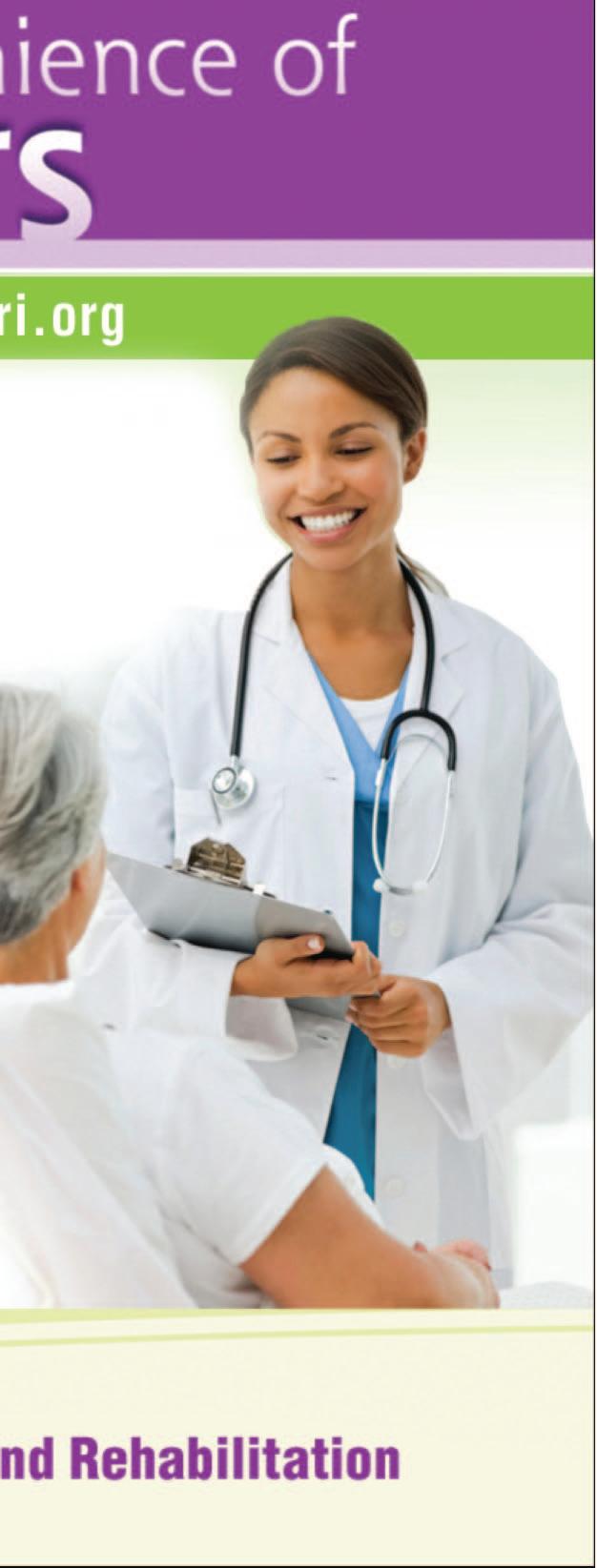
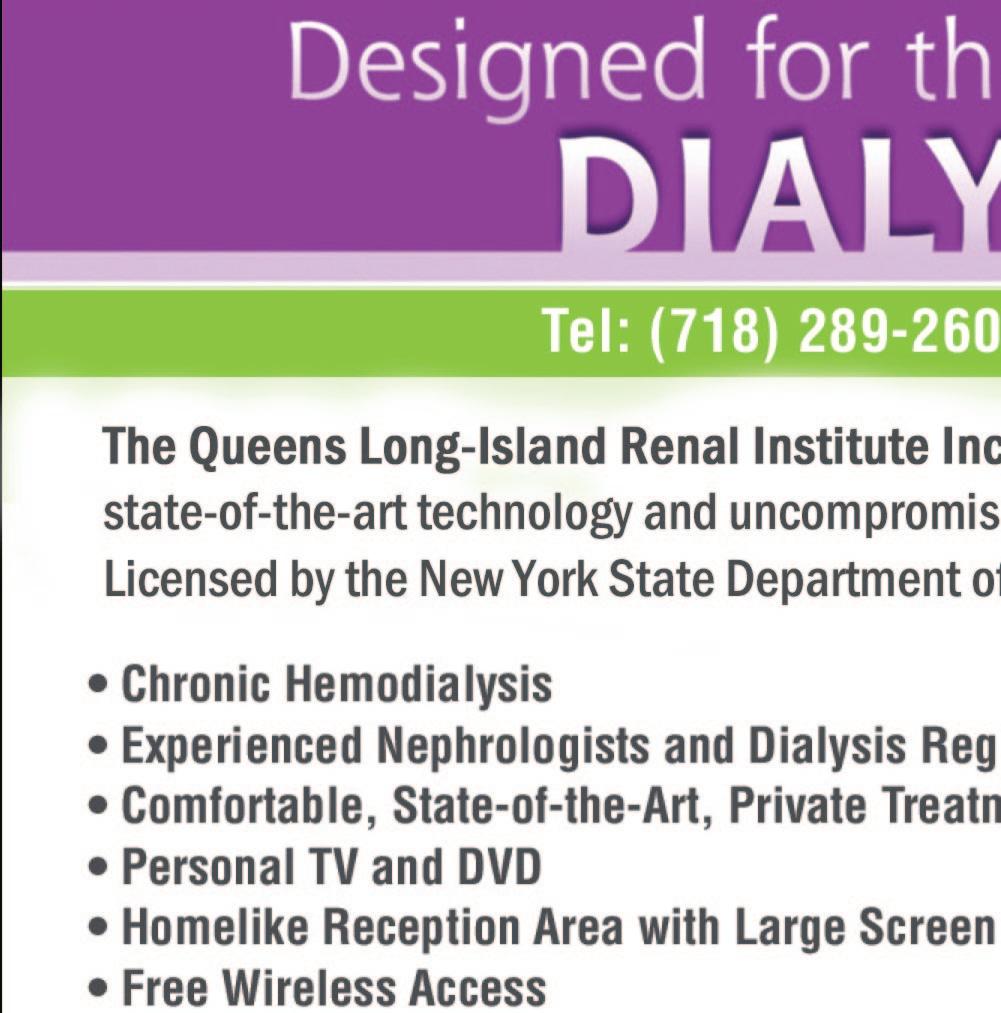
Accept your feelings. Despite the different symptoms and types of mental illnesses, many
families who have a loved one with mental illness, share similar experiences. You may find yourself denying the warning signs, worrying what other people will think because of the stigma, or wondering what caused your loved one to become ill.
Accept that these feelings are normal and common among families going through similar situations. Find out all you can about your loved one’s illness by reading and talking with mental health professionals. Share what you have learned with others.
Take time out. It’s common for the person with mental illness to become the focus of family life. When this happens, other members of the family may feel ignored or resentful. Some may find it difficult to purse their own interests. If you are the caregiver, you need some time to yourself.
Schedule time away to prevent becoming frustrated or angry. If you schedule time for yourself, it will help you to keep things in perspective and you may have more patience and compassion for coping or helping your loved one. Only when you are physically and emotionally healthy can you help others. It is important to remember that there is hope for recovery and that with treatment, many people with mental illness return to a productive and fulfilling life.
Develop new ways of relating to others. Be mindful of old, unhealthy patterns of communicating and practice new ways of relating to your family members. This may include setting and enforcing new boundaries and being
respectful of your own limits. As things shift, appreciate and enjoy the stability in your relationships and recognize that relationships don’t have to be defined by crisis or dependency.
Educate yourself about your family member’s illness. Certainly, this does not mean that you need to know everything about the mental illness of your family member. Your job isn’t to treat or cure your family member, but educating yourself about the illness via reliable online and offline resources can help you understand what your family member is facing and what might have caused problems for your family. It can also help you calm guilt, anger, resentment, embarrassment, shame, and fear.
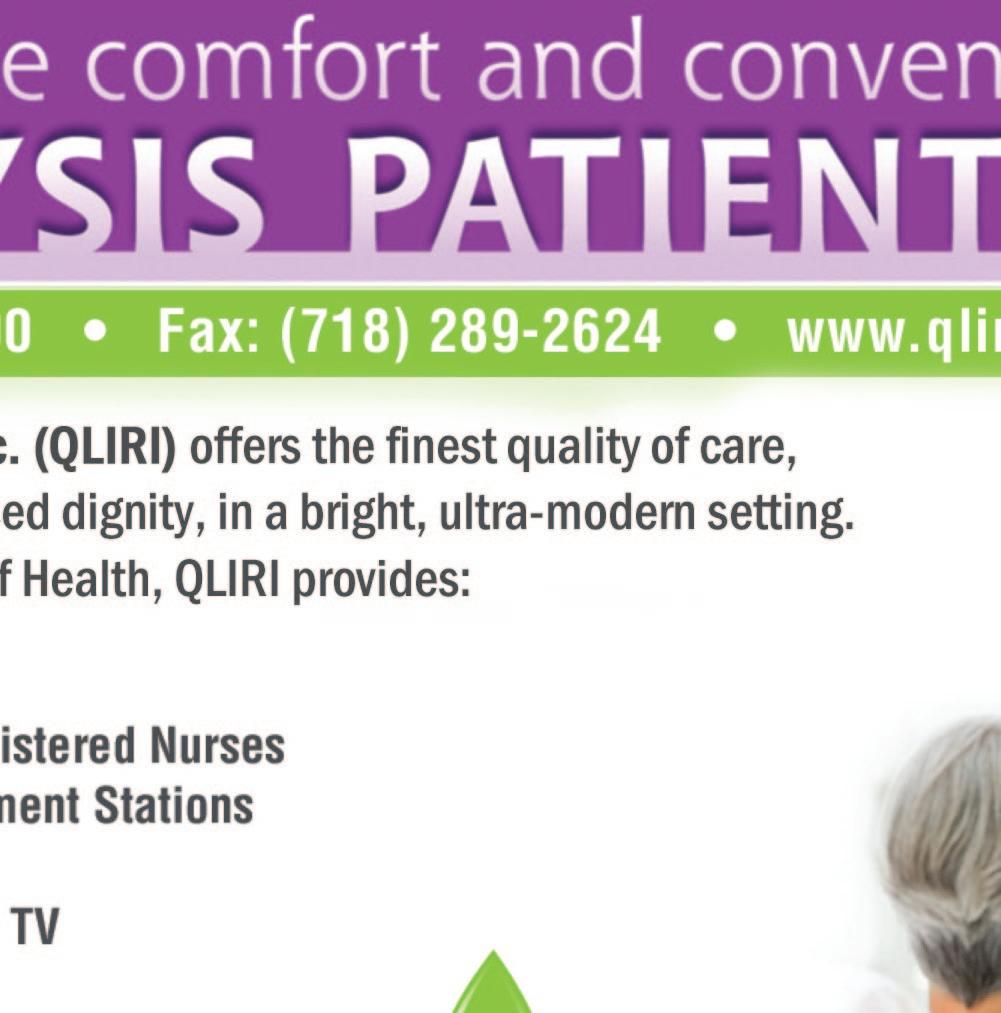
Seek counseling. Therapy can be beneficial for both the individual with mental illness and other family members. You may benefit from seeking assistance not because you should assume that you are automatically inheriting your family member’s mental illness, but because a professional can help you understand how a family member’s mental illness affects your life and help you explore your unmet or repressed needs and emotions. Further, your mental health professional can help you learn and develop healthier ways of caring for yourself, relating to others, and coping with your difficulties in relationships, emotions, and behaviors, if you experience any.
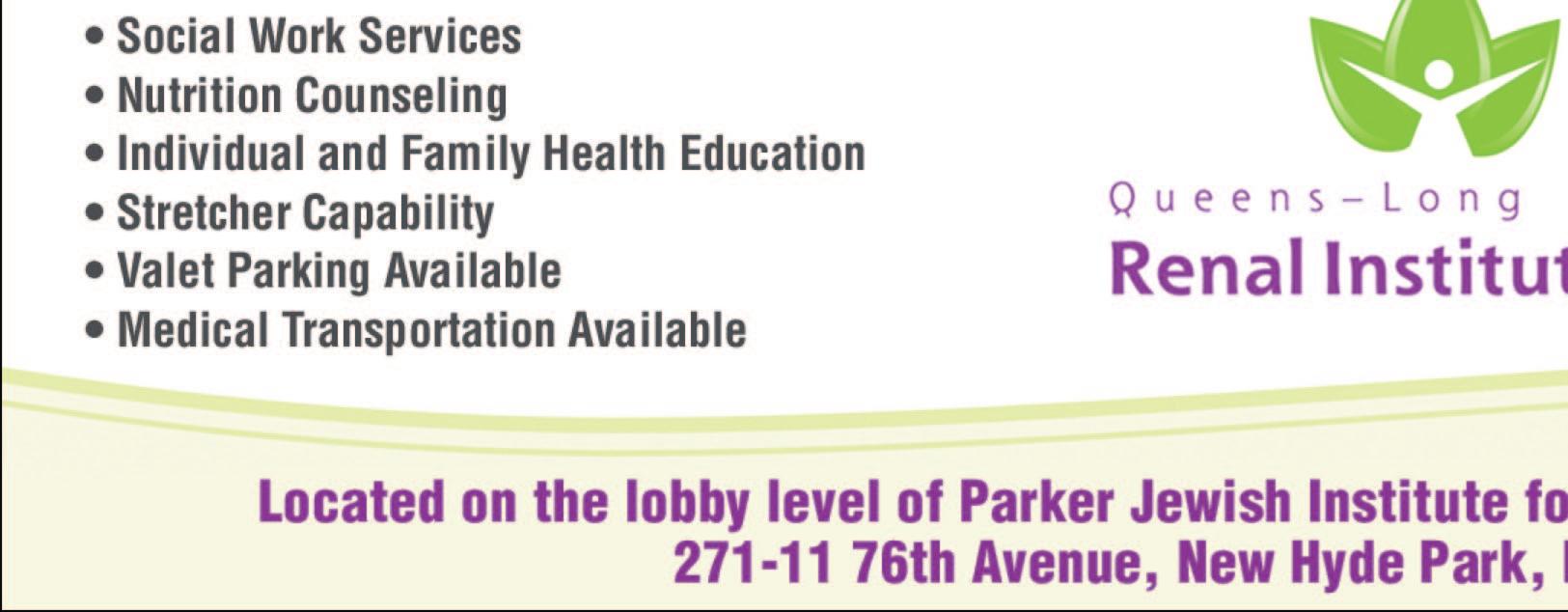
Establish a support network. Whenever possible, seek support from friends and family members. If you feel you cannot discuss your situation with friends or other family members, find a self-help or support group. These groups

provide an opportunity for you to talk to other people who are experiencing the same type of problems. They can listen and offer valuable advice.
A group that addresses your specific situation can help reduce feelings of isolation and validate your experience. Seeking support can be especially helpful when other family members are either uncomfortable with or refuse to acknowledge the problem. If an appropriate in-person support group is not available near you or you are unable to join a group, there may be an online support community available.
Photo: Family life can be challenging in the best of times. However, there are often unique issues when a family member or family members are dealing with a mental health diagnosis.
